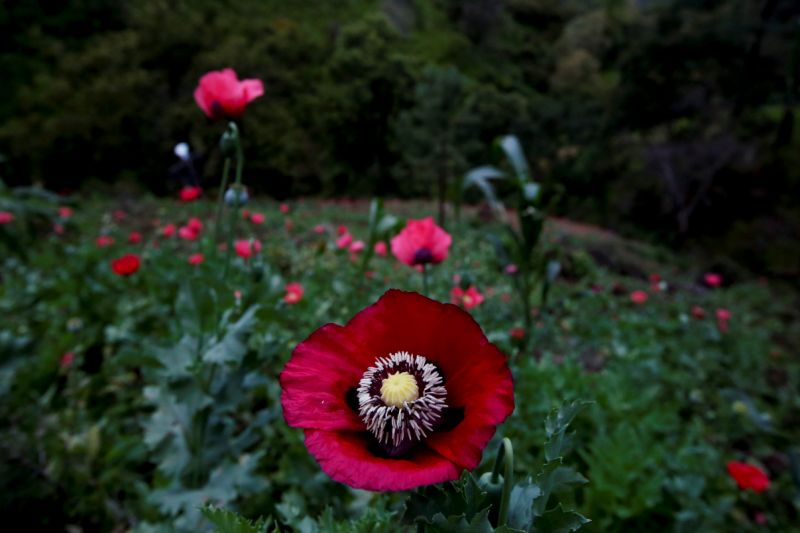In the mountains of Mexico’s tropical sierra, an ever-growing expanse of pink poppy flowers has pushed prices so low for opium paste, the gummy raw ingredient of heroin, that farmer Santiago Sanchez worries about how he will feed and clothe his family.
The area of Mexico that illegally farms opium poppies grew by more than one-fifth last year, to an area the size of Philadelphia, according to a U.N.-backed study published in November.
That, along with a trend toward mixing the synthetic opiate fentanyl in Mexico’s tarry black heroin, has slashed what criminal gangs pay farmers like Sanchez for a kilo of opium. Now, Sanchez earns about $260 per kilo, a fifth of the average price two years ago.
While Mexico’s top drug traffickers still make billions of dollars supplying U.S. addicts, the villagers, at the bottom of the supply chain, are hardly surviving.
“We can’t keep living like this,” said Sanchez, who is a local leader in the remote Mixtec Indian village of Juquila Yucucani, where hundreds of poppy farmers have seen already-meager incomes shrivel. “We can barely afford our food.”

Heroin trade
In the United States, overdose deaths from opioids have increased almost six-fold in the past two decades, according to the Centers for Disease Control and Prevention. More than 15,000 people died of heroin overdoses in 2017 alone.
Heroin from Mexico accounted for 86 percent of the heroin found on U.S. streets, according to the Drug Enforcement Agency’s most recent annual narcotic report.
The heart of illegal poppy cultivation is in the hills of the state of Guerrero, home of some of the poorest mountain districts, such as Juquila Yucucani, some 800 miles south of the U.S.-Mexican border. Guerrero is now among the country’s most violent states.
Despite unprecedented violence across the country, Mexican President Andrés Manuel López Obrador said last week that the government had “officially” ended its war against drug trafficking, a military-led offensive launched in 2006 that led to a surge in bloodshed as criminal groups splintered.
The government’s focus will now be on meeting the needs of marginalized communities, López Obrador said, as part of a broader strategy to curb an illegal drug trade that is thriving despite the capture of high-profile kingpins like Joaquin “el Chapo” Guzman, who is currently on trial in New York for drug trafficking over a period of more than two decades.

